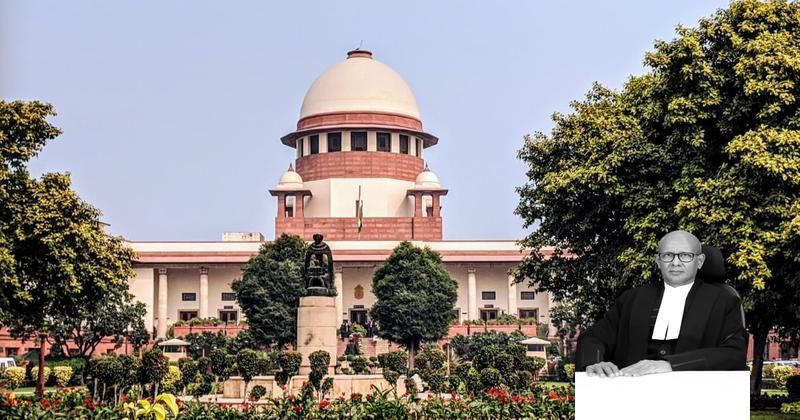In a significant ruling, the Supreme Court of India delivered a landmark judgment on absorption rights in the Minority Welfare Department. The case revolved around the appointment of District Minority Welfare Officers before the enactment of the UP Minority Welfare Department Gazetted Officers Service Rules 2001. Stay tuned to learn more about this crucial legal battle and its implications for the department’s employees.
Facts
- The High Court held that the appointment to the post of District Minority Welfare Officer is to be governed by UP Minority Welfare Department Gazetted Officers Service Rules 2001.
- The High Court concluded that the appellants have no legal right to claim absorption in the Minority Welfare Department.
- The State Government’s rejection of the appellants’ claim for absorption was deemed appropriate by the High Court.
- The writ petition was dismissed by the High Court on the grounds that the issue was similar to another case and lacked merit.
- The appellants were reportedly retained in the Minority Welfare Department due to an interim order by the High Court, but they do not have a legal right to continue in the department or claim absorption.
- The High Court’s judgment was based on the interpretation of the relevant rules and legal rights of the appellants.
- The State Government of Uttar Pradesh created four new Departments in 1995.
- District Minority Welfare Officer posts were to be filled through U.P. Public Service Commission.
- Appellant Dharam Deo Tripathi was a Senior Auditor and applied for the post of District Minority Welfare Officer.
- Government rejected the appellants’ representation seeking absorption as District Minority Welfare Officers.
- High Court issued an interim order protecting the service of the appellants.
- Appellants continued in the post even after two years despite the initial deputation period.
- Government order rejected the appellants’ representation for absorption in the cadre of District Minority Welfare Officer.
- Appellants applied for the post through proper channel and were selected after an interview.
- Appellants made representations seeking absorption in the cadre of District Minority Welfare Officer.
- Appellants were duly selected and appointment letters were issued on 03.10.1997.
Also Read: High Court’s Decision on Large Gala Allotment Dispute: Supreme Court Verdict
Arguments
- The appellants were appointed as District Minority Welfare Officer before the UP Minority Welfare Department Gazetted Officers Rules 2001 came into force.
- A Government Order in 1996 invited applications for the post of District Minority Welfare Officer on service transfer/deputation basis.
- The appellants, who were originally in different departments, applied for this post based on the Government Order.
- Appellant Raja Singh was a District Employment Officer, while Appellant Makrand Prasad was an Assistant Employment Officer.
- The issue to be considered is whether the appellants, having been appointed before the Rules of 2001, were only on deputation and have no legal right to claim absorption.
Also Read: High Court Acquittal Case of State of Uttar Pradesh v. Jai Prakash
Analysis
- The appellants were appointed prior to the enactment of UP Minority Welfare Department Gazetted Officers Service Rules 2001.
- Their appointment was not on deputation but by transfer of service.
- The High Court’s reliance on certain cases to dismiss the writ petition was deemed incorrect.
- The appellants were selected and appointed to the Department of Minority Welfare through a selection process before the existence of Service Rules.
- The High Court directed the Department of Training and Employment to process pension papers for the appellants.
- Raja Singh and three others claimed to be employees of the Department of Minority Welfare and Waqf, seeking ACP and other benefits.
- The High Court’s decision in WP No 44100 of 2013, regarding post-retirement benefits, is stated to be inapplicable to the appellants’ case.
- The appellants, being appointed before the Service Rules 2001, cannot be denied their rights of absorption in the Minority Welfare Department.
- Rule 5 of the UP Minority Welfare Department Gazetted Officers Service Rules 2001 outlines the recruitment process for District Minority Welfare Officer positions.
- The judgment emphasizes that the appellants’ appointment was permanent and not on temporary posts.
- The appellants’ appointment being before the enactment of the 2001 Rules, they are entitled to the benefits applicable to the District Minority Welfare Officer position.
- There was no communication from the Department of Minority Welfare and Waqf proposing repatriation of the appellants to their parent department.
- Raja Singh and Hem Raj Singh retired in 2018, and their pension papers were processed accordingly.
- The argument that the appellants were appointed on temporary posts is refuted due to lack of evidence.
- The case of WP No 44100 of 2013 is distinguished from the appellants’ case based on factual differences.
- Mere years of service in a department on deputation does not change status from deputationist to regular employee.
Also Read: Judgment Review: Supreme Court’s Ruling on the Capital Punishment Appeal
Decision
- Appellants shall receive pension as per admissible rules after adjusting the pension of Raja Singh and Hem Raj Singh.
- Appellants shall be absorbed in the post of District Minority Welfare Officer.
- Minority Welfare Department must comply with directions regarding retired employees Raja Singh and Hem Raj Singh.
- Impugned order of the High Court is set aside, and the appeals are allowed.
Case Title: RAJA SINGH Vs. STATE OF UP
Case Number: C.A. No.-004642-004642 / 2019



